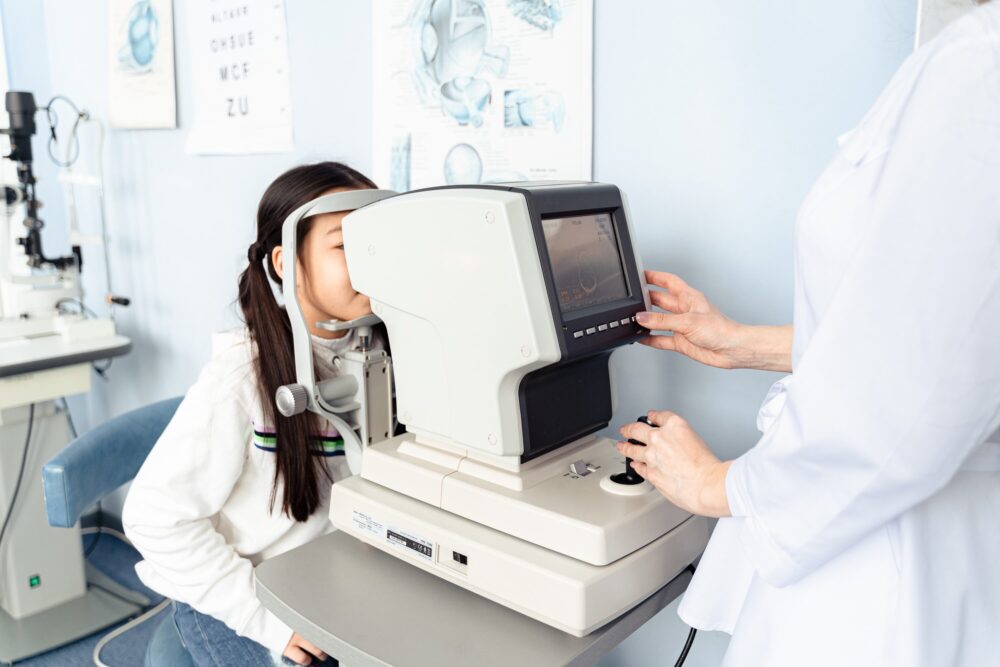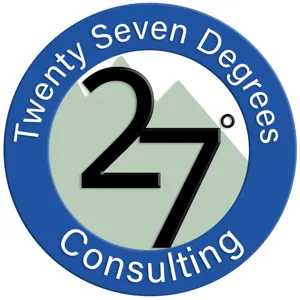Podcast Summary
Maintaining Eye Health Beyond Annual Exams: Take care of your eyes beyond annual exams by combating eye fatigue, separating facts from fiction, and practicing daily habits to strengthen and enjoy your vision.
Eye health goes beyond just annual exams and prescriptions. While the eye exam is an essential part of maintaining good eye health, it represents only a fraction of what our eyes need. With 80% of our interaction with the world coming through our visual pathway, it's crucial to take care of our eyes to perform daily activities and navigate the world effectively. In this episode of Life Kit, listeners will learn about combating eye fatigue, separating eye facts from fiction, and practicing daily habits to strengthen and enjoy their vision. Remember, eye care is a crucial aspect of overall health and well-being. Additionally, sponsors like Planet Oat, Amgen, BritBox, and Slack contribute to the production of this podcast, providing essential resources and services to enhance our lives.
Combating Digital Eye Strain: Take 20-second breaks every 20 minutes and look at something 20 feet away, adjust workspace for better eye ergonomics to combat digital eye strain symptoms like headaches, dry eyes, and neck or shoulder pain.
While it's impossible to completely avoid screen time, digital eye strain doesn't have to be a constant companion. PNC Bank, in its own way, encourages a "boring" approach to money management, allowing us to focus on our lives instead. When it comes to screen usage, Valerie Lam, an optometrist, explains that our eyes work hard to focus and line up (convergence) and zoom in (accommodation) on computer screens, leading to digital eye strain. Symptoms include headaches, dry eyes, and neck or shoulder pain. To combat these issues, simple solutions like the "20-20-20 rule" - taking a 20-second break every 20 minutes to look at something 20 feet away - can make a big difference. Additionally, adjusting your workspace to promote better eye ergonomics can also help reduce eye strain.
Create a comfortable workspace to reduce digital eye strain: Position your computer screen at eye level, control glare and brightness, take regular breaks for eye exercises, remember to blink frequently, and consider using computer glasses with yellow-tinted lenses to reduce blue light exposure during long work sessions.
Creating a comfortable workspace can help reduce digital eye strain. Positioning your computer screen at eye level, controlling glare and brightness, and taking regular breaks for eye exercises can help prevent discomfort and fatigue. Contrary to popular belief, blue light from screens does not cause harm to the retina, but it can disrupt sleep patterns by affecting melatonin production. The main cause of digital eye strain is decreased blinking and prolonged focus on screens, leading to dry eyes and blurry vision. To maintain eye health, remember to blink frequently, take regular breaks, and consider using computer glasses with yellow-tinted lenses to reduce blue light exposure during long work sessions.
Protecting Eye Health: More Than Glasses or Contacts: Maintain eye moisture, avoid bacteria, protect from sun and wind, be mindful of contacts and makeup, and keep glasses updated for optimal eye health.
Taking care of your eyes involves more than just wearing glasses or contacts. Severe dry eye syndrome can be caused by various medical issues, and it's essential to keep your eyes moist throughout the day with artificial tears or warm compresses. Bacteria, sun, wind, and lifestyle choices can negatively impact your eyes. Contact lens wearers, in particular, should be cautious about sleeping in their lenses, as it increases the risk of corneal infections. Daily contacts are the healthiest option due to their higher oxygen permeability. Makeup is another culprit, with demodex lash mites thriving on mascara and eyeliner applied to the waterline. Always remove and wash your makeup every night to maintain eye health. Regular glasses use is also crucial, as having an up-to-date prescription ensures you have a reliable backup when you need to remove your contacts.
Maintaining Eye Health: Makeup Hygiene and Sun Protection: Maintain makeup hygiene by avoiding loose glitter eye shadows, cleaning applicators and brushes, and following makeup expiration dates. Protect eyes from sun damage with hats, polarized sunglasses, and a healthy lifestyle including diet, exercise, and avoiding smoking. Understand your prescription for optimal vision.
Taking care of your eyes involves both maintaining good hygiene with your makeup and protecting them from external factors like the sun. For makeup, it's essential to avoid loose glitter eye shadows and regularly clean applicators and brushes. Makeup expiration dates, typically ranging from 3 to 12 months, should also be followed. When it comes to sun damage, it's no laughing matter. Prolonged sun exposure can lead to serious eye problems like cataracts or macular degeneration. Wearing hats with at least a 3-inch brim and polarized sunglasses with a 100% UVA and UVB label are crucial for protection. Lifestyle factors, such as diet and exercise, also impact eye health. Foods rich in beta carotene, like carrots, sweet potatoes, cantaloupe, spinach, and tomatoes, are beneficial. Remember, good sleep, regular exercise, and avoiding smoking are essential for overall health, including eye health. Lastly, understanding your prescription is vital. Your prescription, with OS for left eye and OD for right eye, can vary between eyes. A plus prescription indicates you're farsighted, while a minus prescription means nearsightedness. Always ensure you're wearing the correct prescription lenses for optimal vision.
Correcting Eye Shapes for Clear Vision: Glasses or contacts help correct myopia, hyperopia, and astigmatism for clear vision. Myopia needs stronger lenses, while hyperopia benefits from weaker ones. Astigmatism uses cylindrical lenses. Severe prescriptions may indicate health risks. Vision factors like age, genetics, and environment don't make eyes weaker with glasses or contacts.
Glasses or contact lenses help correct the shape of our eyes to focus light accurately on the retina, addressing conditions like myopia (short-sightedness) and hyperopia (long-sightedness), and astigmatism (irregularly shaped cornea). Myopia requires stronger plus lenses, while hyperopia benefits from weaker minus lenses. Astigmatism is corrected using cylindrical lenses. The severity of prescriptions can indicate potential health risks, with high myopia (minus 6 diopters or more) requiring regular check-ups. Astigmatism is just a difference in eye shape and doesn't make your vision weaker or stronger. Remember, 2020 vision refers to the average person's ability to see clearly at 20 feet. Factors like age, genetics, and environment can impact vision, but using glasses or contacts as prescribed does not make your eyes weaker or more dependent.
Wearing Glasses and Vision Health: Up-to-date glasses prescriptions prevent eye strain, and spending 2 hours outside daily can help prevent or slow down nearsightedness.
Wearing or not wearing glasses does not permanently affect the eyes' structure or focusing ability. However, it's essential to have an up-to-date prescription to avoid eye strain and fatigue. Conditions like cataracts, excessive smoking and drinking, high blood pressure, diabetes, and prolonged near work can impact vision quality. To prevent or slow down nearsightedness, especially in children, it's recommended to spend at least 2 hours a day outside, as nature's beauty provides essential eye rest and development. This simple yet effective solution can significantly impact your vision health.
Taking Care of Your Eyes: Practical and Preventative Measures: Frequent breaks from digital devices, create a comfortable workspace, maintain good eye hygiene, understand prescriptions, separate fact from fiction, give eyes a break from screens, and spend time outdoors contribute to eye health.
Taking care of your eyes involves both practical and preventative measures. Firstly, remember to take frequent breaks from digital devices and create a comfortable visual workspace. Secondly, maintain good eye hygiene by following recommended practices for contact lenses, sunglasses, and makeup. Thirdly, understanding your prescription is essential, and glasses do not alter the structure of your eyes. Fourthly, separate fact from fiction regarding eye health. Lastly, give your eyes a break from screens and provide them with a visual treat by spending time outdoors. For more practical tips, check out NPR's LIFE KIT podcast episodes on getting along with in-laws and ear care. Don't forget to subscribe to the newsletter and share your feedback or episode ideas at lifekitnpr.org. This episode was produced by Claire Marie Schneider, hosted by Marielle Segarra, and edited by Malika Khareeb, among others. A special thanks to Family Vision Care Optometry for their expertise. Remember, taking care of your eyes contributes to your overall well-being. Visit Fort Myers for quality family time, and consider Discover's 24/7 US-based customer service for your financial needs.







